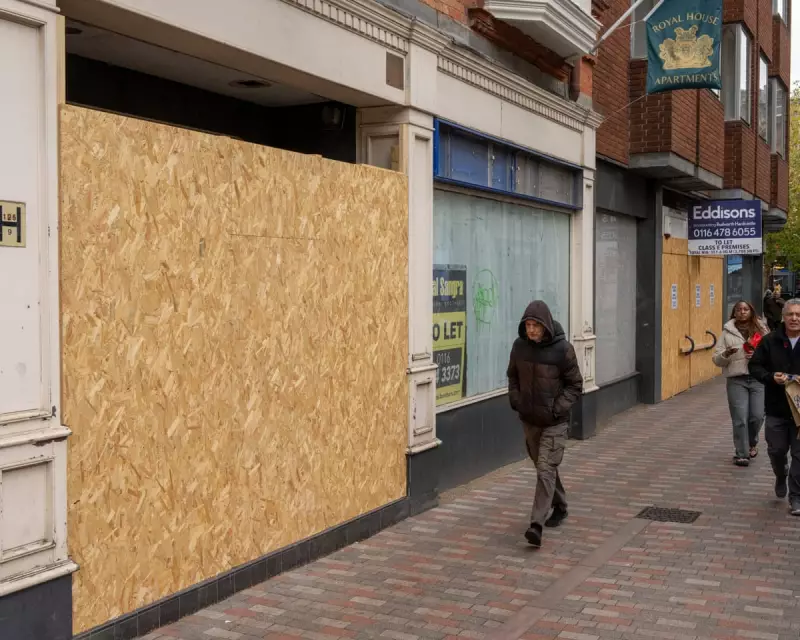
Leicester's Economic Struggle: The UK's Lowest Disposable Income
Persistent low wages have positioned Leicester at the very bottom of UK rankings for annual gross disposable household income, creating a severe cost of living crisis affecting thousands of residents. The city now faces a critical juncture as hopes rest on the upcoming budget to provide much-needed relief.
The Human Cost of Economic Decline
Anika, a full-time charity worker who requested anonymity, represents the human face of this crisis. Despite working full-time, she cannot afford to eat in local cafes or restaurants and must bring her lunch to work daily. "Everything is so expensive. I cry, and ask myself what more can I do to make things better," she reveals, highlighting the emotional toll of financial strain.
The situation has become so dire that four families sharing a single house, with one family per room, has become commonplace according to Zinthiya Ganeshpanchan, founder of the Zinthiya Trust anti-poverty charity. Speaking from her temporary city centre office, Ganeshpanchan explains how cramped living conditions exacerbate both financial and emotional problems, often leading to abusive relationships.
"I think the city is falling apart," Ganeshpanchan states bluntly, noting her organisation now operates 18 emergency rooms across Leicester for abuse victims made homeless, filling the void left by council service cuts.
Economic Reality: The Numbers Behind the Crisis
Official figures reveal the stark economic reality facing Leicester residents. The city has the UK's lowest gross disposable household income at just £16,067 per head annually - approximately £1,340 monthly to cover all expenses including rent, energy, and food. This contrasts sharply with London's average of £35,361 per head, while City of London residents typically have £129,429 available.
Professor Rachel Granger, an economics expert at De Montford University, provides context: "20% of Leicester ranks as deprived - twice the national average." She notes that while employment rates appear healthy, the city suffers from "lots of very low wage work" and "shockingly low" average household wealth.
The energy debt crisis compounds these problems, with Ofgem figures showing UK household gas and electricity debt reached nearly £4.5 billion in the first half of this year alone.
Infrastructure Challenges and Political Response
Leicester's industrial base has weakened significantly following the decline of its historic textile industry. While local firms once supplied major retailers like Marks & Spencer, the council now relies heavily on small and medium enterprises. Supermarket sandwich supplier Samworth's emerges as one of the largest employers with over 5,000 staff.
Elected mayor Peter Soulsby attributes the city's statistical challenges to 1972 boundary changes that excluded wealthier suburbs from calculations. However, he acknowledges the real impact of austerity measures: "We lost Sure Start, our youth provision, some of our public health service." With approximately 70% of council spending directed toward adult and social care, public health services face severe constraints.
Rob Howard, Leicester's head of public health, highlights additional challenges: "We have a lot of Victorian housing with poor insulation and a large number of families on low incomes, which meant we had a huge increase in fuel poverty. That hasn't gone away."
Budget Hopes and Economic Realities
As Chancellor Rachel Reeves prepares the November budget, Leicester residents hope for intervention. Potential measures include tackling government-regulated "administered prices," lifting the two-child cap on welfare benefits, and injecting funds into free school meals programmes.
The minimum wage, which has increased from 40% to nearly 60% of average earnings since its introduction, may see further significant rises next April according to Downing Street rumours.
However, Leicester risks missing crucial infrastructure investments. An upgrade to the East Midlands rail line from London to Sheffield stops just short of the city, denying residents the benefits of electrification that would bring higher speeds and greater reliability.
Simon Jenner, director of Leicester Business Improvement District, acknowledges the contradiction between positive developments and economic metrics: "Our restaurants are getting better all the time, but the economic metrics say things are getting worse."
With between 60-70% of the Zinthiya Trust's clients being working people, often holding multiple jobs just to pay bills, the charity's founder notes that today's financial problems are "much more complex" than when she started 16 years ago.
As budget day approaches, the question remains whether government intervention will provide the lifeline Leicester so desperately needs, or whether the city's economic decline will continue unchecked.





